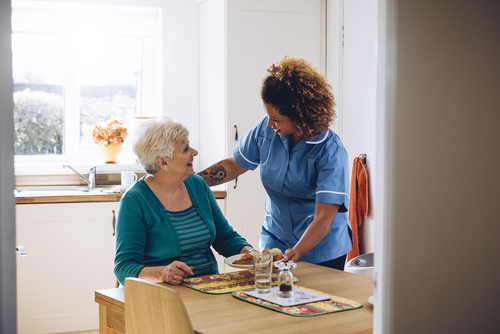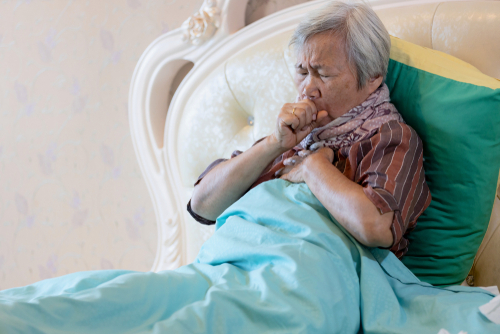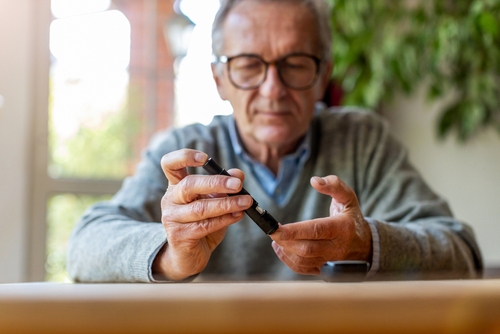24/7 or Live-in Care: What is a Live-in Caregiver?
Category:

How do you know when it’s time to consider a live-in caregiver for yourself or your loved one? For those who choose to remain in their own home as they age, live-in help may be the way to accomplish that goal.
The first thing to consider is the difference between a 24/7 caregiver and a live-in helper. Let’s pinpoint the live-in caregiver meaning by answering a few questions.
What is live-in care?
Live-in care is exactly what it sounds like. The live-in caregiver lives in the home and is there to provide care and assistance as needed.
The live-in caregiver can be there for a short term while you recover from surgery or an illness, or it can be set up for long-term care.
If someone needs ongoing support, the live-in care arrangement can be the ideal way to keep your loved one in the home. This type of live-in arrangement works very well for the person who does not require 24/7 awake staff but requires someone to be present in the home in case of a spontaneous need.
The caregiver who lives in the home is not expected to be awake and on duty for 24 hours. They are entitled to 8 hours of sleep time (usually while the client is sleeping), but they are in the home if there is an emergency.
The caregiver should have a private bedroom with storage space for personal items.
What does a live-in caregiver do?
The live-in caregiver’s role is adaptable and geared toward the needs of the person they are caring for. They can help with bathing, dressing, and other hygiene needs. They help with meal planning and preparation to ensure the patient adheres to a prescribed diet when indicated.
The caregiver does light housekeeping, laundry, and whatever it takes to keep the household running smoothly.
Providing transportation to doctor’s appointments and trips to the grocery store or hair salon is part of the caregiver’s duties.
Companionship and socialization are important, so the live-in caregiver can plan outings, such as trips to concerts, walks in the park, or any other social event that interests the client.
Conversations with the family and their loved one can help determine the needs and expectations of the caregiver to help meet those needs.
If the live-in arrangement is not adequate to provide the care your loved one needs, you may need to consider 24/7 care.
If your loved one has dementia, Alzheimer’s, is prone to wandering at night, or suffers from a medical condition that requires around-the-clock oversight, 24/7 care is necessary.
Download Our Live In Care Guide
How does 24/7 care differ from having a live-in caregiver?
The main difference between 24/7 care and live-in care is that 24/7 care provides around-the-clock awake staff. The caregiving team is made up of more than one person, and each person has an assigned shift to cover. The 24-hour shift schedule is determined by the sponsoring agency and the patient’s or family’s preference.
Several caretakers are assigned to the case, and they rotate the shifts according to their availability and shift preference.
Griswold Home Care can provide both live-in care and 24/7 care. The Griswold team in your area can meet with you to assess your needs and set up exactly what your loved one requires to flourish in the comfort of their own home.
Check us out to learn more about the services we provide.
Subscribe
Date: November 10, 2022
Category:


